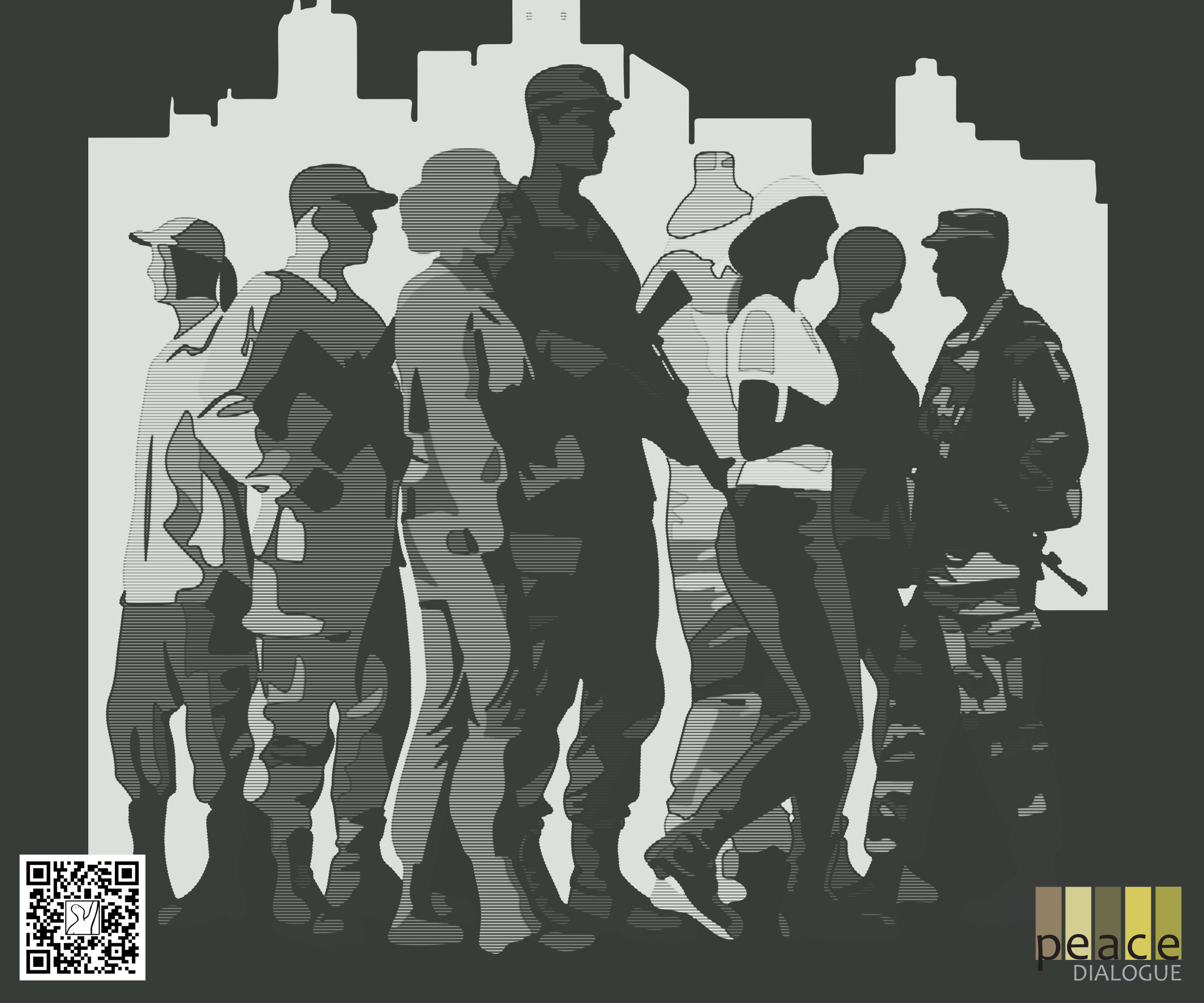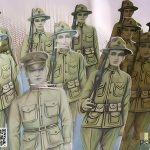PROJECTS

Promotion of Human Rights in the RA Defense Sector / Vol. 6
The “Promotion of Human Rights in the RA Defense Sector” is an initiative led by Peace Dialogue NGO, focusing on leveraging the potential of civil society to boost the effectiveness of governmental efforts in enhancing human rights within the Armenian Defense Sector.
This initiative seeks to establish oversight by civil society on the formulation and execution of state policies and to identify existing challenges within the Defense Sector with the goal of devising recommendations for their resolution.
Promotion of Human Rights in the RA Defense Sector / Vol. 6

The “Promotion of Human Rights in the RA Defense Sector” is an initiative led by Peace Dialogue NGO, focusing on leveraging the potential of civil society to boost the effectiveness of governmental efforts in enhancing human rights within the Armenian Defense Sector.
This initiative seeks to establish oversight by civil society on the formulation and execution of state policies and to identify existing challenges within the Defense Sector with the goal of devising recommendations for their resolution.
Creating a People-Centered Peace Treaty for Armenia and Azerbaijan: Understanding the Needs of Communities Affected by Conflict

Collaborating with its partners, the organization aims to pinpoint the requirements and apprehensions of various societal groups. These insights are crucial not only for informing official negotiations, but also for recognizing the challenges that impede the creation of a sustained and honorable peace between Armenia and Azerbaijan.
Enhancing Civil Society Engagement for Human Rights in Armenia’s Defense Sector/Phase 5

Through this initiative, the organization aims to drive positive change by establishing a consistent civil society oversight of the sector. The goal is to closely monitor the execution of the Human Rights Action Plan 2023-2025 by defense institutions, and to offer evidence-based recommendations that enhance the efficiency of Parliament, state bodies, and relevant local and international stakeholders.
Alternative Conflict Resolution Mechanisms for Youth

Within the framework of the project, an online interactive course will be created aimed at developing participants’ skills in constructive, cooperative, and creative conflict resolution. The authors involved in the project will prepare six fiction stories, through the analysis of which the participants will get acquainted with conflict theories and various tools for dealing with conflicts, as well as they will gain effective negotiation skills.
Fostering civil society’s participation in the development and implementation of state policy in the field of human rights protection in the defense sector of Armenia

In the framework of the aforementioned project, which will last until May 31, 2023, Peace Dialogue will carry on the monitoring activities of defense sector institutions in the scope of Human Rights Action Plan 2020-2022.
Nagorno-Karabakh: Documenting the Human Cost of War

In the scope of the project, Peace Dialogue NGO is implementing a collation of materials shedding light on the events of the war. The collation work is based on the methodology developed through the coordination of the Conciliation Resources NGO with the involvement of specialists from swisspeace. The pilot phase of the project, lasting from 1 January till 30 June 2021, addresses the basic information deficit about the conduct and impact of the hostilities from 27 September – 9 November 2020, including violations of IHL and IHRL that have been widely shared by citizens on social media (primarily videos on different social media platforms including but not limited to Facebook, Twitter, Telegram, and YouTube) or shared directly with the project involved partners.
Open Narratives Initiative

Since January 2020, Peace Dialogue NGO has been implementing an initiative called Open Narratives. The project is aimed at fostering a critical and self-critical reflection on past, present and possible future impacts of the Nagorno-Karabakh conflict on social and political constructs, as well as to the formation of national, gender, religious and other identities in societies involved in the aforementioned conflict.
From a longer-term perspective, the initiative is aimed at shaping a realistic vision of the future following the 44-day war, based on critical and self-critical analysis of lessons from the past and present.



